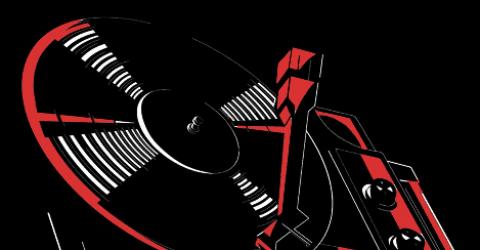The history of DJ and Hip Hop comes from the term Turntablism that is best known as a modern art form and musical practice that laid down its roots in the early 1970s.
Kool DJ Herc, Afrika Bambaataa and Grandmaster Flash are widely credited for having a strong foundation within the role of Hip Hop DJs as entertainers. Kool Herc’s invention of break-beat DJing is generally regarded as the foundational development in Hip Hop history.To understand the significance of this achievement, it is important to first define the “break.”
The “break” of a song is a musical fragment only seconds in length, which typically takes the form of an “interlude” in which all or most of the music stops except for the percussion. The break is roughly equivalent to the song’s “climax,” as it is meant to be the most exciting part of a song before returning once more to its finale.
Kool Herc introduced the break-beat technique as a way of extending the break indefinitely. This is done by buying two of the same record and switching from one to the other on the DJ mixer.
Kool Herc’s techniques set the course for the development of turntablism as an art form in significant ways. Most important, however, he developed a new form of DJing that does not consist of playing and mixing records one after the other. In addition, Kool Herc originates the idea of creating a sequence for his own purposes, introducing the idea of the DJ as the “feature” of parties, whose performance on any given night would be examined critically by the crowd.
However it was Grand Wizard Theodore, an apprentice of Flash, who accidentally isolated the most recognizable technique of turntablism: scratching. He put his hand on a record one day, to silence the music on the turntable while his mother was calling out to him and thus accidentally discovered the sound of scratching by moving the record back and forth under the stylus. Though Theodore discovered scratching, it was Flash who helped push the early concept and showcase it to the public, in his live shows and on recordings.
These early pioneers cemented the fundamental practice that would later become one of the pillars of the emerging turntablist art form. Scratching during the 1980s became a playing field for hip hop music, being used by producers and DJs on records and in live shows. By the end of the 1980s it was very common to hear scratching on a record, generally as part of the chorus of a track or within its production. On stage the DJ would provide the music for the MCs to rhyme to, scratching records during the performance and showcasing his skills alongside the verbal skills of the MC. The most well known example of this ‘equation’ of MCs and DJ is probably Run DMC who was composed of two MCs and one DJ. The DJ, the late Jam Master Jay, was an integral part of the group since his turntablism was critical to Run DMC’s productions and performances.
As you can see, DJs have played a critical role in the art of Hip Hop for many years. DJs are still evolving every day and learning new techniques to entertain their audiences.
If you would like to start a discussion about history of DJ’s leave a comment or contact DJ Untouchable at info@deejayuntouchable.com and (Office) 336-833-4752, (Cell) 267-269-9709.
December 17, 2008
Categories: History of DJ . Tags: Afrika Bambaataa, break-beat, Grand Wizard Theodore, Grandmaster Flash, Hip Hop Culture, Jam Master Jay, Kool DJ Herc, Run DMC, scratching, Turntablism . Author: Martez Minott . Comments: Leave a comment
